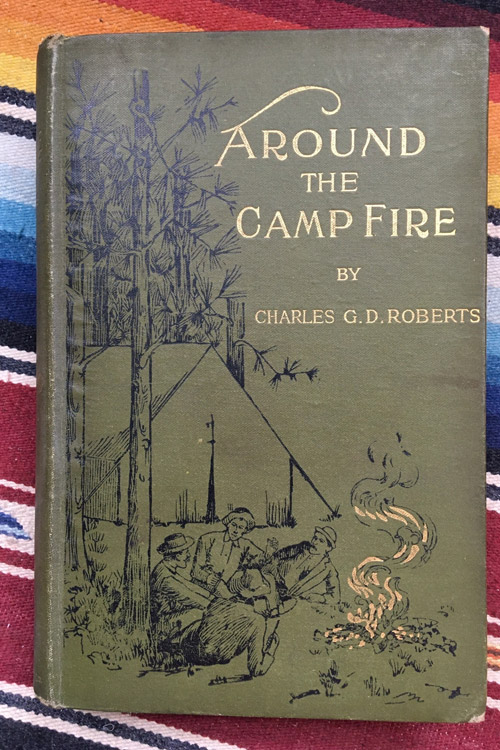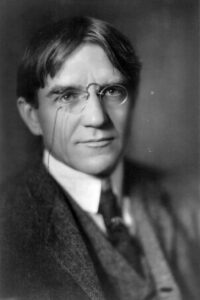
Around the Camp-fire
It was toward the end of July, and Fredericton, the tiny New Brunswick capital, had grown hot beyond endurance when six devoted canoeists—Stranion, Magnus, Queerman, Sam, Ranolf, and myself—heard simultaneously the voices of wild rapids calling to them from afar. The desire of the woods awoke in us. The vagrant blood that lurks in the veins of our race sprang up and refused to be still. The very next day, we fled from the city and starched collars, seeking freedom and the cool of the wilderness.
We set our eager faces toward Lake Temiscouata and the wilds of the Squatooks. In shirt sleeves and moccasins, we went. For convenience, we had our clothes stitched full of pockets. We put our three suitable birch canoes and our other impedimenta on board a flat-car at the station. That same evening, we found ourselves at the village of Edmundston, where the Madawaska flows into the St. John at a point about 150 miles above Fredericton. Unless you are an experienced canoeman, skilled not only with the paddle but with the pole, and expert at running the roughest rapids, you should take a guide on the Squatook trip. You should go in the bow of your canoe, with a trusty Indian in the stern; one Indian and one canoe for each party man.
The art of poling a birch bark against a stiff current is no easy one to acquire and needs both aptitude and practice. Your Indian will teach you in the gentler waters, and the rest of the time, you may lounge at your ease, casting a fly from side to side and ever climbing on between the changing shores. But as for us, we needed no Indians. We were all six masters of canoe craft. Each took his turn at the white spruce pole, and we conquered the currents rejoicing.
Read or download Book
Sir Roberts Charles G. D.
Sir Charles George Douglas Roberts (January 10, 1860 – November 26, 1943) was a Canadian poet and prose writer.
Biography.
He was one of the first Canadian authors to be internationally known. He published various works on Canadian exploration and natural history, verse, travel books, and fiction.” He continued to be a well-known “man of letters” until his death. Besides his own body of work, Roberts has also been called the “Father of Canadian Poetry” because he served as an inspiration and a source of assistance for other Canadian poets of his time. Roberts, his cousin Bliss Carman, Archibald Lampman, and Duncan Campbell Scott are known as the Confederation Poets. He also inspired a whole nationalist school of late 19th-century poets.
Roberts was born in Douglas, New Brunswick, in 1860, the eldest child of Emma Wetmore Bliss and Rev. George Goodridge Roberts (an Anglican priest). Rev. Roberts was rector of Fredericton and canon of Christ Church Cathedral, New Brunswick. Charles’s brother, Theodore Goodridge Roberts, and sister, Elizabeth Roberts MacDonald, also became authors. Between the ages of 8 months and 14 years, Roberts was raised in the parish of Westcock, New Brunswick, near Sackville, by the Tantramar Marshes. He was homeschooled, primarily by his father, who was educated in Greek, Latin, and French. He published his first writing, three articles in The Colonial Farmer, at 12.
After the family moved to Fredericton in 1873, Roberts attended Fredericton Collegiate School from 1874 to 1876 and then the University of New Brunswick (UNB), earning his B.A. in 1879 and M.A. in 1881. At the Collegiate School, he came under the influence of headmaster George Robert Parkin, who gave him a love of classical literature and introduced him to the poetry of Dante Gabriel Rossetti and Algernon Charles Swinburne.






